Ethiopia rose summer village and Panama rose summer characteristics distinguish rose summer village red label rose summer coffee bean flavor taste story
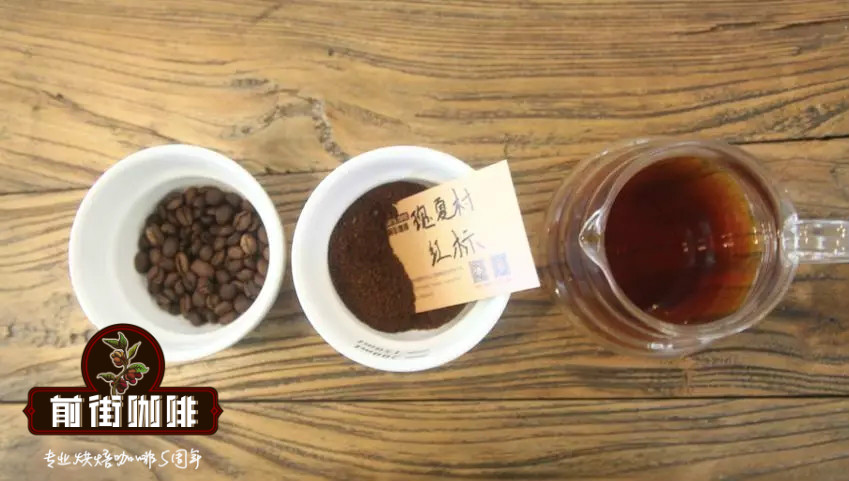
Professional coffee knowledge exchange More coffee bean information Please pay attention to coffee workshop (Weixin Official Accounts cafe_style)
Before meeting Willem Boot, owner of La Mula in Panama, Adam Overton had only a vague dream of buying a farm in Ethiopia to grow the best coffee in the world.
Why Ethiopia? Because Ethiopia is said to be the home of roses, in the last century roses were brought from the depths of the native forest to Panama. It was only in the early 2000s that it became the most amazing coffee in the world. His wife Rachel Samuel is Ethiopian.
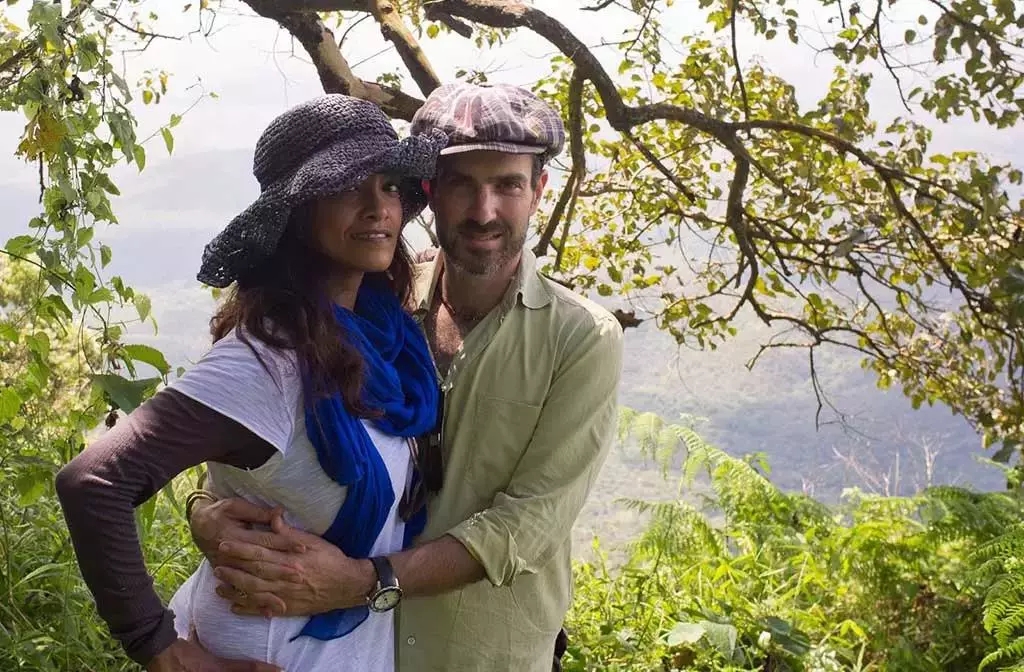
Adam, who has no experience growing coffee at all, is a documentary film director by profession and Rachel, a professional photographer, were commissioned to shoot a coffee documentary in Ethiopia in 2007. From then on, I fell in love with coffee and wanted to buy coffee garden wholeheartedly.
In 2009, they met Willem Boot, three years after Willem Boot bought La Mula, a Panamanian estate that grows roses. To learn, the couple flew from Ethiopia to Panama to learn from Willem Boot at Donkey Farm. At the time, no one knew that La Mula, a small estate, would shine in the Best Panama competition five years later.
But Willem Boot was already known for its Ethiopian origins in search of summer. Since Rose appeared in Best Panama in 2004, he has been hoping to find the origin of Rose in Ethiopia's vast virgin forest, and organized several exploration trips to explore unexplored places. Although the results were limited, he never gave up.
Why is it so important to go back to Ethiopia and find out where the rose came from?
For Willem Boot, finding coffee that tastes as good as Panama's rose means finding coffee varieties that combine disease resistance and superior flavor under the threat of global warming, which is of unspeakable importance to the future survival of coffee.
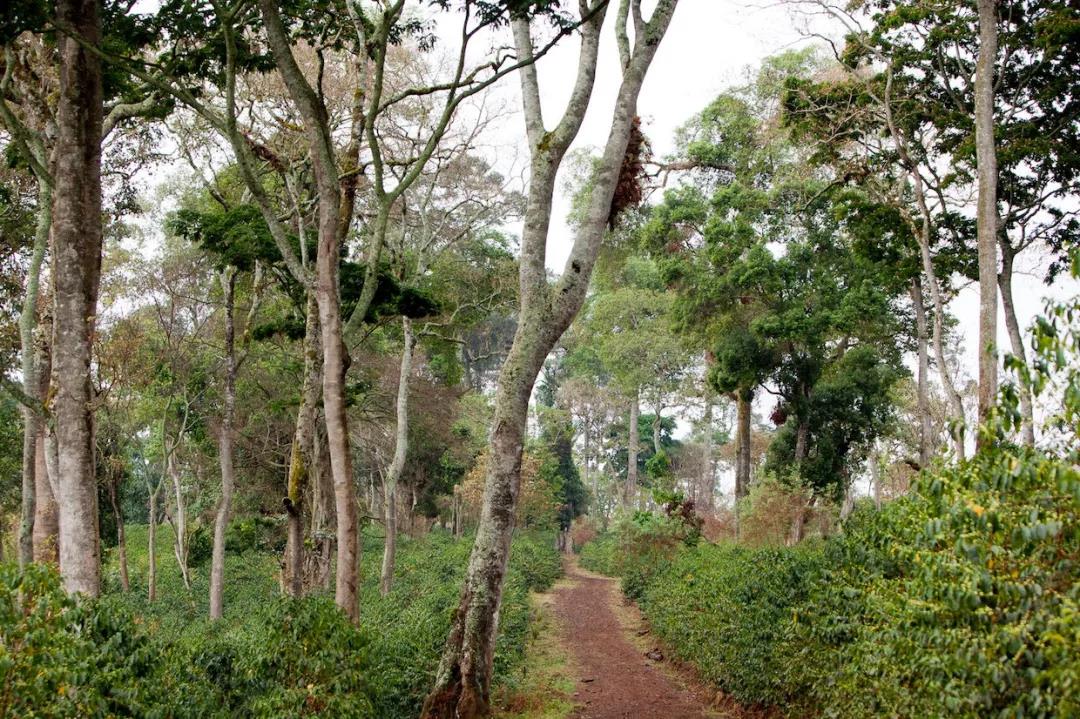
Learning from Willem Boot, Adam and his wife's dream was a major turning point, and their determination to build their own summer house was strengthened. Since they live in Addis Ababa, the capital of Ethiopia, they initially wanted to find a place closer to them, which was easier to find and convenient for transportation. But to meet the conditions for growing roses, considering altitude, microclimate, and all the other conditions, I unknowingly searched farther and farther until I finally came to the most remote southwest of Ethiopia, bordering the Sudanese border.
This area is Bench-Maji, a two-day drive from Addis, and there are several villages called "Rose Summer" nearby, which is also the most likely place for the legendary Rose Summer. Bench-Maji was isolated from the rest of the world, and outsiders rarely entered until roads were opened a few years ago. The local Meanit aborigines have their own language. To all outsiders, they call it China!
Adam and his wife, accompanied by locals, climbed into the mountains and immediately fell in love with the land-1900 to 2100 meters above sea level, abundant rainfall, suitable temperature patterns, rich virgin forest soil, long-standing coffee growing ecology, and ancient coffee trees. After three years of searching, he finally found a foothold in this dreamland. They adopted a rustic name: Gesha Village Coffee Estate.
When the farm broke ground in October 2011, Willem Boot, their consultant, flew to the estate and found it more like a camping prairie than a thriving farm. In order to guard against lions, watchtowers were built on the farm to give early warning. To explore the forest, one must be armed with AK-47 rifles, guard against fierce wildlife, and be accompanied by indigenous people with spears.
Almost at the same time, however, there was a breakthrough in the search for suitable summer varieties. Willem Boot and Adam found wild roses very similar to Panama roses in a virgin forest not far from the estate. No matter how cherry and branch grow, they are comparable. The environment for growth is deeply covered by shade trees. Thousands of coffee bushes grow. Coffee flowers are in full bloom. The air is filled with incredible jasmine fragrance. Willem Boot recalled that it was like "being in heaven"!
The forest they discovered, called the Gori Gesha Wild Coffee Forest, is located just 20 kilometers from the estate and Adam believes it is the same source from which the famous Panamanian rose was harvested in 1930. Willem Boot also believes that these trees are very similar to the summer roses he planted in La Mula, which have green and brass young leaves. In February 2012, Willem Boot returned to the estate and the estate's summer rose variety was finally finalized.
But for Willem Boot, morphological similarity alone was not enough; he needed more precise scientific evidence: genetics. He called Dr. Sarada Krishnan of the Denver Botanical Gardens to genetically compare coffee beans from the Rosedale Forest with Rosedale extracts from Panama. Krishnan spent nine months comparing the two roses and concluded that the genetic similarities were extremely high.
Adam's "Guixia Village Estate" now has 300 hectares, and 50 hectares will be added next year. The planting density was maintained at only 2000 trees per square hectare, and 30,000 shade trees were planted in the first three years of the estate, not only to improve the growth of coffee trees, but also to maintain rich biodiversity, allowing native species to grow freely in it. Treatment methods include washing and sun, washing is to use environmental Penagos washing machine to treat.
In 2015, Ethiopia's Guixia Village harvested for the first time. With a nervous mood, they took the first batch of processed raw beans and sent them to Willem Boot Cup. This is the best cup Willem Boot has tried all year!
In 1931, a rose was taken away from Ethiopia, blossomed in a foreign land, and became famous all over the world. Eighty-five years later, a documentary filmmaker with a dream rediscovers the hometown of this summer, and the world will have a chance to know the summer of Ethiopia.
The internal classification of Guixia Village: bidding, gold standard, red standard, green standard, Chaka batch Guixia, so how should these be distinguished?
Even the finest estates produce coffee of varying quality. In order to live up to the "flavor reputation" of Guixia Village, a strict grading system has been implemented in Guixia Village.
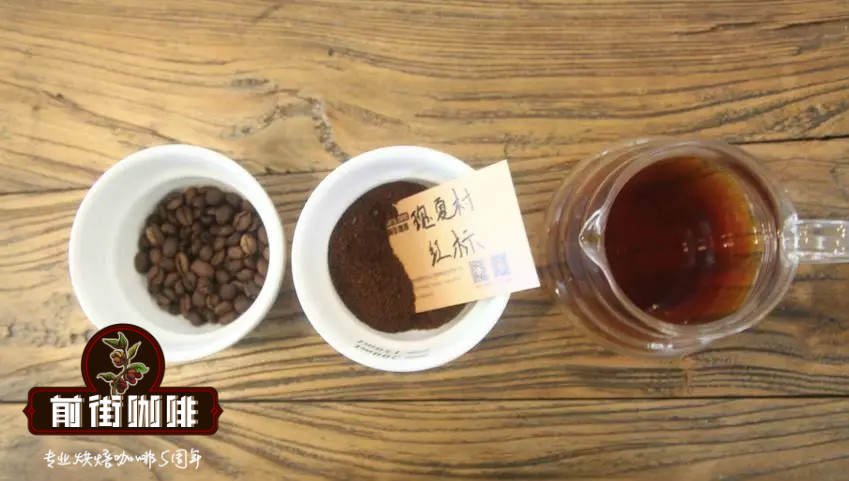
> Bidding batches
It accounts for only 3.7% of the annual output of Guixia Village. The top batch of the estate after rigorous screening can only be obtained through the global bidding of Guixia Village Coffee Estate in 2018. The cup test score of the bidding batch in 2018 is 88.15-92.67 points, which is divided into Champion s Reserve and Farm Reserve.
For example, Gesha Village 2018 Auction Lot RSV.6 is a bidding lot.
> Gold standard batch
It only accounts for 5% of the annual output of Guixia Village. The batches usually selected by competitors all over the world will also be purchased by bakers with high requirements for quality. It has complete traceability. Each batch has outstanding flavor and high complexity. It is the most excellent standard next to bidding in the manor.
> Red label batch
Batches with complete traceability have typical summer flavor, flavor intensity and complexity are slightly weaker than gold standard batches, and are single product batches with very high cost performance;
> Green Label Lot
A batch from a single plot and a single variety, with typical rustic flavor, flavor intensity and complexity slightly weaker than the red label batch;
>Chaka batches
The coffee blend produced by Guixia Village includes three varieties, namely Gori Gesha, Gesha 1931 and Illubabor (Ethiopian native disease-resistant variety).
How should coffee be brewed? Front Street Coffee Sharing Guixia Village Brewing Parameters
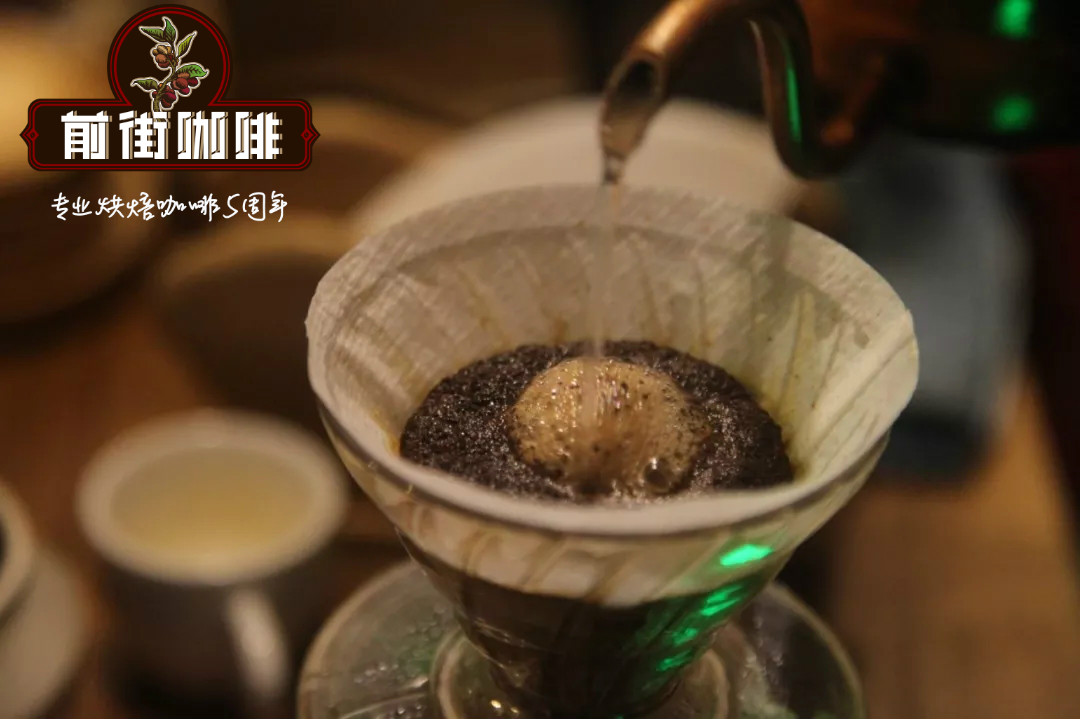
Front Street Coffee suggested brewing method: hand brewing
Filter cup: Hario V60
Water temperature: 88℃
Grindability: BG 5R (58% pass rate of Chinese standard No.20 sieve)
Powder water ratio: 1:15
[Brewing method] Segmented extraction. 27g water steams for 30 seconds, water is injected into the water with small flow to 122g, water is injected continuously to 226g when the water level drops and the powder bed is exposed, and the filter cup is removed when the water level drops and the powder bed is exposed. (Steaming start timing) Extraction time: 2 minutes.
[Flavor] Coconut, licorice, cream, chocolate, toffee, citrus, almond, strawberry, smell fermented. The overall flavor is balanced, the taste is mellow, and the nutty flavor is outstanding.
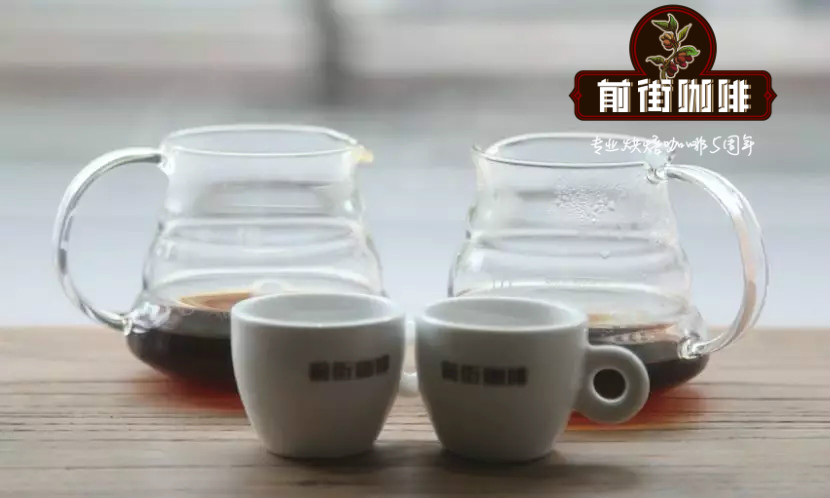
Rose Summer and Yerga Sheffield Rose Summer and Yerga Sheffield Rose Summer and Yerga Sheffield
END
Important Notice :
前街咖啡 FrontStreet Coffee has moved to new addredd:
FrontStreet Coffee Address: 315,Donghua East Road,GuangZhou
Tel:020 38364473
- Prev
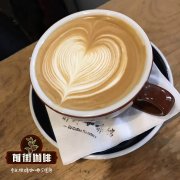
The difference between caramel macchiato and caramel latte is caramel macchiato black sugar macchiato?
Professional coffee knowledge exchange more coffee bean information please follow the coffee workshop (Wechat official account cafe_style) caramel macchiato (English: Caramel Macchiato [Note 1]) is a kind of macchiato coffee with caramel. A drink made by adding espresso and vanilla to fragrant hot milk and finally sprinkled with pure caramel. it is characterized by three drinks in one cup.
- Next

Characteristics of Indonesian Sumatra Gold Manning G1 Coffee beans hand-baked Mantenin Coffee brewing Flavor
Indonesian gold mantenin handmade flavor characteristics Indonesian coffee is mainly produced in Sumatra, Java and Sulawesi, among which Mantenin from Sumatra is the most famous. Mantenin is also known as Sumatran Coffee. North Sumatra produces mostly Gayo, mainly ateng at the northern end.
Related
- Detailed explanation of Jadeite planting Land in Panamanian Jadeite Manor introduction to the grading system of Jadeite competitive bidding, Red bid, Green bid and Rose Summer
- Story of Coffee planting in Brenka region of Costa Rica Stonehenge Manor anaerobic heavy honey treatment of flavor mouth
- What's on the barrel of Blue Mountain Coffee beans?
- Can American coffee also pull flowers? How to use hot American style to pull out a good-looking pattern?
- Can you make a cold extract with coffee beans? What is the right proportion for cold-extracted coffee formula?
- Indonesian PWN Gold Mandrine Coffee Origin Features Flavor How to Chong? Mandolin coffee is American.
- A brief introduction to the flavor characteristics of Brazilian yellow bourbon coffee beans
- What is the effect of different water quality on the flavor of cold-extracted coffee? What kind of water is best for brewing coffee?
- Why do you think of Rose Summer whenever you mention Panamanian coffee?
- Introduction to the characteristics of authentic blue mountain coffee bean producing areas? What is the CIB Coffee Authority in Jamaica?

